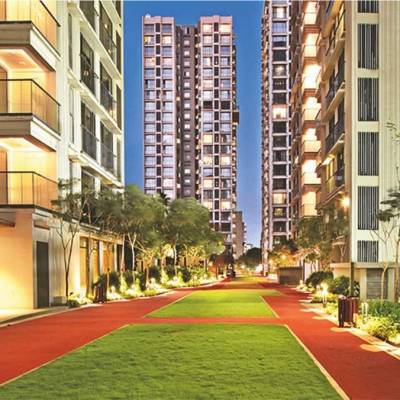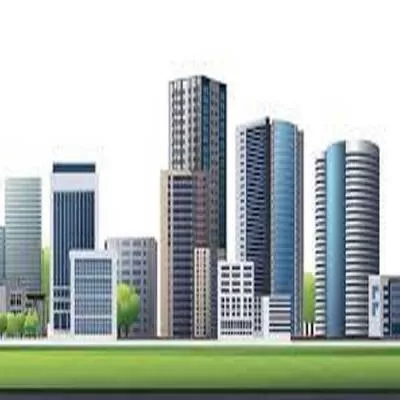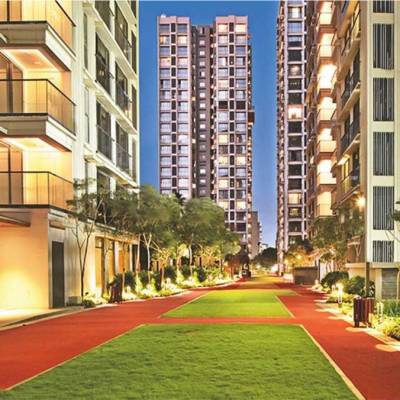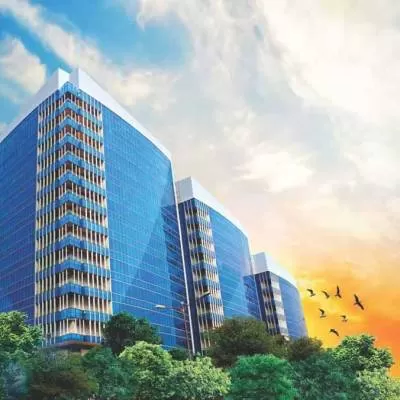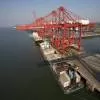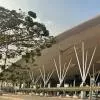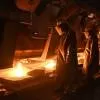- Home
- Real Estate
- Offsite manufacturing
Offsite manufacturing
Katerra develops design and technology-driven solutions that help reduce delivery time up to 50 percent, thereby speeding up the construction process to deliver smarter and better commercial and residential spaces for our clients. With its factories in Krishnagiri, Hyderabad, and Lucknow (portable factory setup) in India, the company has the capacity to manufacture a 1.2 million sq ft building in less than 50 days through end-to-end building services.
At Katerra, technology is used at all levels of building design and construction, bringing tested system approaches from global industries to ensure greater efficiency in building design and development. "We are using technology-led end-to-end solutions across the building delivery cycle - right from design to procurement and offsite manufacturing to onsite installation and ultimately, delivery of the building," says Nejeeb Khan, Head, Design & Business Strategy in India, Katerra." Our technology-driven component design and productivised building solutions are Designed for Manufacturing and Assembly (DfMA), which enables our clients to benefit from speed and cost optimization while still having a unique building design." The company's automated assembly-line production, along with factory-built components including bathroom, rooms, double walls, beams, hollow-core slabs, among others, are built offsite at a factory set up with mechanical, electrical, plumbing work, finishes, and fittings. And as Khan informs, "finished components are then delivered onsite just-in-time using pre-determined software simulated schedules and assembled onsite. This integrated technology approach helps us deliver projects faster, efficiently, and more sustainably."
Katerra's factories act as an extension of job sites, providing greater precision, higher productivity, and enhanced quality control. "The company has also developed a host of curated, high-quality building products in HVAC, lighting, bath pods, building materials, and finishes," informs Khan. "It has also been suppliers of a global chain on curated, high- quality building products, and provides full-fledged building products to every sector, including residential –single and multi-family homes, commercial office buildings, hotels, malls, hospitals, schools, and industrial parks."
Katerra
Year of establishment: Founded in 2015 by Michael Marks
Growth graph: Today, Katerra has more than 700 projects in progress and six factories across the globe.
Headquartered: Silicon Valley
Reach: Operational offices across North America, India, China, and the Middle East
Clientele: In India: Embassy Group, Bosch, and Infosys in Bengaluru; Lulu Mall, KMCH Hospitals, and GEMS Schools to deliver solutions for commercial and industrial buildings, hospitals, malls, and schools; recently broke ground for a new residential and office space project with Vaishnavi Group.
Over the last decade, the country has witnessed increasing migration, especially among millennials, to urban areas for better career prospects. This has led to increased pressure on the existing infrastructure and real estate development and an urgent need for smarter, better, and sustainable buildings. The Indian construction industry, with its conventional construction methods, has been struggling with delays in project completion due to lack of industrial and technological advancement, procedural, permission constraints, and delayed processes. There is a dire need to transform the industry to meet the massive demand for residential and commercial buildings by introducing technology-driven models for construction, and this has led Katerra to the Indian construction sector. Katerra develops design and technology-driven solutions that help reduce delivery time up to 50 percent, thereby speeding up the construction process to deliver smarter and better commercial and residential spaces for our clients. With its factories in Krishnagiri, Hyderabad, and Lucknow (portable factory setup) in India, the company has the capacity to manufacture a 1.2 million sq ft building in less than 50 days through end-to-end building services. At Katerra, technology is used at all levels of building design and construction, bringing tested system approaches from global industries to ensure greater efficiency in building design and development. We are using technology-led end-to-end solutions across the building delivery cycle - right from design to procurement and offsite manufacturing to onsite installation and ultimately, delivery of the building, says Nejeeb Khan, Head, Design & Business Strategy in India, Katerra. Our technology-driven component design and productivised building solutions are Designed for Manufacturing and Assembly (DfMA), which enables our clients to benefit from speed and cost optimization while still having a unique building design. The company's automated assembly-line production, along with factory-built components including bathroom, rooms, double walls, beams, hollow-core slabs, among others, are built offsite at a factory set up with mechanical, electrical, plumbing work, finishes, and fittings. And as Khan informs, finished components are then delivered onsite just-in-time using pre-determined software simulated schedules and assembled onsite. This integrated technology approach helps us deliver projects faster, efficiently, and more sustainably. Katerra's factories act as an extension of job sites, providing greater precision, higher productivity, and enhanced quality control. The company has also developed a host of curated, high-quality building products in HVAC, lighting, bath pods, building materials, and finishes, informs Khan. It has also been suppliers of a global chain on curated, high- quality building products, and provides full-fledged building products to every sector, including residential –single and multi-family homes, commercial office buildings, hotels, malls, hospitals, schools, and industrial parks. Katerra Year of establishment: Founded in 2015 by Michael Marks Growth graph: Today, Katerra has more than 700 projects in progress and six factories across the globe. Headquartered: Silicon Valley Reach: Operational offices across North America, India, China, and the Middle East Clientele: In India: Embassy Group, Bosch, and Infosys in Bengaluru; Lulu Mall, KMCH Hospitals, and GEMS Schools to deliver solutions for commercial and industrial buildings, hospitals, malls, and schools; recently broke ground for a new residential and office space project with Vaishnavi Group.



